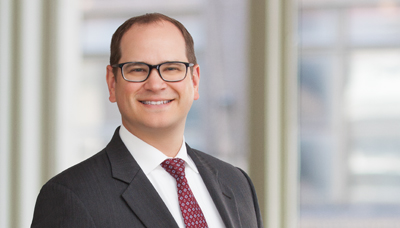The National Institutes of Health (NIH) and other federal agencies have issued revised rules and requirements for reporting disclosures, electing title, licensing, and filing patent applications on inventions generated with federal funding under the Bayh-Dole Act. The changes to the rules and regulations pursuant to the Bayh-Dole Act went into effect for all new and continuation awards as of Oct. 1, 2018.
The bulk of the changes can be found in 37 C.F.R. § 401.14.
Here are a few of the most critical, the latter two are also relevant to other federal funding awards:
- All reporting-requirement communications with the NIH must go through the iEdison electronic portal.
- Additionally, modifications have been made to the licensing relationship between nonprofit entities and the federal agency, and nonprofit government contractor sites.
- Finally, the new rules provide greater protections against Freedom of Information Act (FOIA) requests for information submitted to the agency concerning inventions that the recipient has elected to retain title and is not yet publicly available. (37 C.F.R. § 401.13).
The new rules also updated three important terms in 37 C.F.R. § 401.2:
- “Contractor” means any person or entity, regardless of size that is a party to a funding agreement.
- “Initial patent application” now includes the first provisional or non-provisional U.S. national application, the first international application, or the first application for a Plant Variety Protection certificate.
- “Statutory period” means the one-year period before the effective filing date of a claimed invention during which exceptions to prior art exist.
Focusing on changes to § 401.14, “Standard Patent Rights Clauses,” the new rules increase obligations on awardees and removed obligations on the federal agency, summarized as follows:
- The contractor will notify the federal agency in writing whether or not it will elect title within (i) two years from disclosing the invention to the federal agency, or (ii) if the one-year statutory period has begun, no later than 60 days prior to the end of the statutory period.
- The contractor will file an initial application within one year after electing title, or sooner if the one-year statutory period has begun. If the initial application is a provisional application, the contractor must file a non-provisional and foreign applications within 10 months from the initial application filing date.
- Upon request, the federal agency may grant extensions for disclosing, electing, and filing patent applications.
- Upon written request from the federal agency, the contract will convey title to the federal agency when (i) the contractor fails to disclose or elect title in time, (ii) contractor elects not to retain title, or (iii) to contractor fails to file, continue prosecuting, or maintaining once granted. The federal agency is no longer bound by a 60 day window to elect title once it learns of a failure on the part of the contractor to act.
- The contractor is required to have agreements in place with all employees to assign all right, title, and interest to each invention created under the funding award to contractor and an obligation to participate in complying with all disclosure, prosecution, and litigation requirements.
- The contractor is required to inform the federal agency 60 days prior to any statutory deadline that it will not continue to participate in prosecution, maintenance, or litigation concerning a patent application.
- The contractor is required to include the following clause in a subcontract that uses funding from the federal agency award: “The subcontractor will retain all rights provided for the contractor in this clause, and the contractor will not, as part of the consideration for awarding the subcontract, obtain rights in the subcontractor's subject inventions.”
- The contractor must preference licensing to a small business to commercialize the invention and the federal agency may review the contractor’s licensing program to review compliance.
For more information, please contact Eric Williams at (317) 231-6410 or eric.williams@btlaw.com, or Jessamine Pilcher at jessamine.pilcher@btlaw.com or (317) 231-7803, or the Barnes & Thornburg attorney with whom you work or a member of the firm’s Intellectual Property Law Department in the following offices: Atlanta (404) 846-1693, Chicago (312) 357-1313, Columbus (614) 628-0096, Dallas (214) 258-4200, Delaware (302) 300-3434, Elkhart (574) 293-0681, Fort Wayne (260) 423-9440, Grand Rapids (616) 742-3930, Indianapolis (317) 236-1313, Los Angeles (310) 284-3880, Minneapolis (612) 333-2111, San Diego (619) 321-5000, South Bend (574) 233-1171, and Washington, D.C. (202) 289-1313.
© 2019 Barnes & Thornburg LLP. All Rights Reserved. This page, and all information on it, is proprietary and the property of Barnes & Thornburg LLP. It may not be reproduced, in any form, without the express written consent of Barnes & Thornburg LLP.
This Barnes & Thornburg LLP publication should not be construed as legal advice or legal opinion on any specific facts or circumstances. The contents are intended for general informational purposes only, and you are urged to consult your own lawyer on any specific legal questions you may have concerning your situation.














